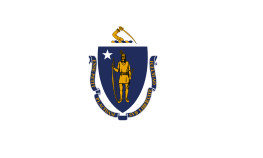Samuel Clesson Allen
| Samuel Clesson Allen | |
|---|---|
| Member of the U.S. House of Representatives from Massachusetts's 6th district | |
|
In office March 4, 1817 – March 3, 1823 | |
| Preceded by | Samuel Taggart |
| Succeeded by | John Locke |
| Member of the U.S. House of Representatives from Massachusetts's 7th district | |
|
In office March 4, 1823 – March 3, 1829 | |
| Preceded by | Henry W. Dwight |
| Succeeded by | George Grennell, Jr. |
| Member of the Massachusetts House of Representatives | |
|
In office 1806–1810 | |
| Member of the Massachusetts Senate | |
|
In office 1812–1815 | |
| Personal details | |
| Born |
January 5, 1772 Bernardston, Massachusetts |
| Died |
February 8, 1842 (aged 70) Northfield, Massachusetts [1] |
| Political party | Federalist Party, Adams, Massachusetts Workingmen's Party |
Samuel Clesson Allen (January 5, 1772 – February 8, 1842) was a U.S. politician from Massachusetts during the first third of the 19th century. He began his career as a member of the Federalist Party, but later became a staunch supporter of Democratic presidents Andrew Jackson and Martin Van Buren.
Allen was born in Bernardston, Massachusetts and schooled in nearby New Salem. He was descended from Edward Allen (1640–1696), who was born in England and settled in the Connecticut Colony.[2] He graduated from Dartmouth College in 1794, and was ordained as a Congregational minister. After serving three years in the pulpit, Allen began to study law, and was admitted to the Massachusetts bar in 1800.
Allen began his career in politics in 1806, when he was elected to the Massachusetts House of Representatives. He served in the House until 1810, then served in the Massachusetts Senate from 1812 to 1815. A year after leaving the state senate, he was elected to the United States House of Representatives, where he sat as a Federalist from 1817 to 1829. He was a noted supporter of the John Quincy Adams administration.
After returning to Massachusetts, Allen became affected by the plight of western Massachusetts farmers and laborers, whose lives were being upended by industrialization. As a result of his observations and concerns, Allen became a vocal supporter of the Massachusetts Workingmen's Party, and was the party's unsuccessful nominee for state governor in 1833 and 1834.
Allen died in Northfield, Massachusetts, and was buried in Bernardston.
Legacy
Allen's son, Elisha Hunt Allen, also served in the United States Congress.
References and external links
- United States Congress. "Samuel Clesson Allen (id: A000146)". Biographical Directory of the United States Congress.
- Schlesinger, Arthur M, Jr. The Age of Jackson. Boston : Little, Brown, 1953 [1945].
- Samuel Allen at Find-A-Grave
| United States House of Representatives | ||
|---|---|---|
| Preceded by Samuel Taggart |
Member of the U.S. House of Representatives from Massachusetts's 6th congressional district March 4, 1817 – March 3, 1823 |
Succeeded by John Locke |
| Preceded by Henry W. Dwight |
Member of the U.S. House of Representatives from Massachusetts's 7th congressional district March 4, 1823 – March 3, 1829 |
Succeeded by George Grennell, Jr. |
References
- ↑ National Aegis, 2 Mar 1842
- ↑ "Edward Allen". Ancestry.com. Retrieved September 19, 2015.

